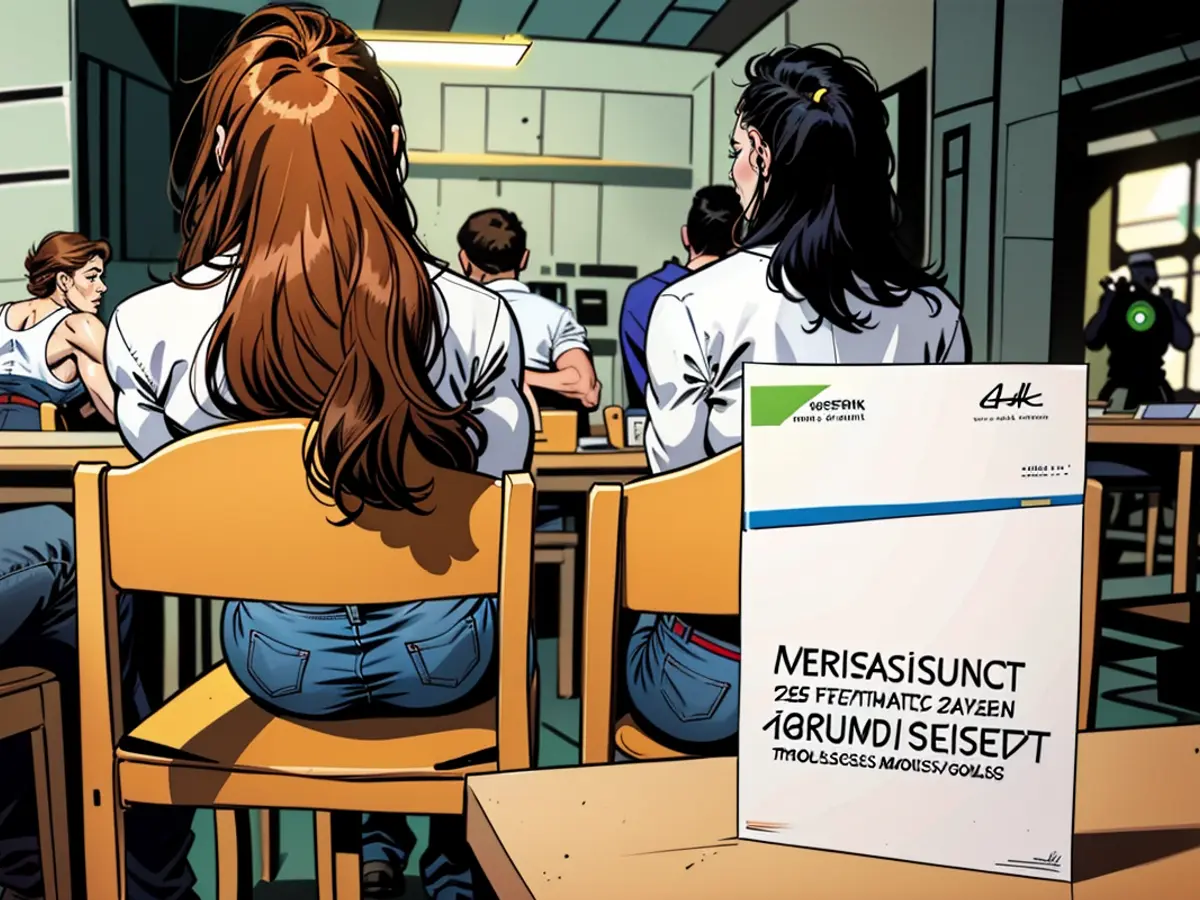- Researchers see further need for school democracy education
Before the start of the "Constitutional Quarter Hour" in Bavarian schools, Augsburg's Professor of Education, Klaus Zierer, finds further need for improvement in civic education based on a survey of teachers. "Democracy needs democrats, and school is the central place for civic education," said the professor at Augsburg University.
Bayern aims to introduce the "Constitutional Quarter Hour" in all schools at the start of the next school year, but this political lesson will initially not be offered in all grade levels. The "Constitutional Quarter Hour" will be held once a week during regular class time and will alternate between different subjects.
Zierer conducted a quick survey of teachers in Bavaria in July 2024. 317 teachers from various school types participated, he explained. Although the number of participants does not reach the 1,000 mark often considered representative, Zierer referred to it as a "sample" that provides a basis for general conclusions.
Teachers could rate 30 theses on a scale of 1 (do not agree) to 4 (agree). For example, the statement "Societal themes are controversially discussed at our school" received an average score of 2.98.
Researcher: More needs to be done despite good starts
The survey shows that there are already many good approaches to promoting civic education in schools, said Zierer. "However, the structural embedding appears improvable, to which the 'Constitutional Quarter Hour' can contribute, but certainly not sufficiently."
According to Zierer, the survey shows that democratic methods in lessons, such as dilemma discussions, where opposing action options are discussed, achieve a rating of around 2.59 and are therefore rarely found. Despite their proven effectiveness, these methods are often missing in civic education concepts.
Despite democratic structures, rather random opinion formation
Democratic structural elements such as school assemblies or student parliaments are present in the majority of schools (3.19), but the opinion-forming process often runs randomly and lacks structural embedding (2.32), Zierer explained the results.
Zierer is one of the best-known educationalists in Germany and has been working with New Zealand educational researcher John Hattie for years. Hattie gained worldwide attention more than a decade ago with his study "Visible Learning". This study is often used for new educational approaches and is continuously updated by Hattie and Zierer based on further scientific results.
The introduction of the "Constitutional Quarter Hour" in all Bavarian schools can potentially enhance the structural embedding of civic education, as suggested by Professor Zierer. Despite the promising start, there's a need for more democratic teaching methods in civic education, such as dilemma discussions, which often lack implementation.
Educational research highlights the importance of structurally embedding democratic methods in civic education. Professor Zierer's survey revealed that while democratic structures like school assemblies and student parliaments are common, the opinion-forming process is often haphazard, indicating a need for improvement.








